Tag Archives: “CFOOD”
Canadian Perspective on Atlantic Cod Stocks & Management
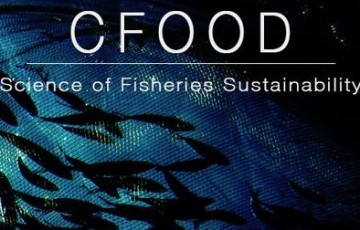 Last week we released a two part feature on the status of Atlantic cod stocks. Click here Part 1 was a general overview of the status of stocks while Part 2 dove deeper into the reasons behind different statuses.
Last week we released a two part feature on the status of Atlantic cod stocks. Click here Part 1 was a general overview of the status of stocks while Part 2 dove deeper into the reasons behind different statuses.
Jeffrey Hutchings, a fishery scientist at Dalhousie University was inspired to comment on our CFOOD feature below;
Despite voluminous research, science discussions of Atlantic cod can verge on the simplistic. Overfishing and ‘the environment’ unhelpfully portrayed as alternative or additive causes of decline. Temperature presented unequivocally as the driver of recruitment. Variable attention to how differential responses to natural and human-induced environmental stressors can be influenced by basic elements of demography — population size, age structure, natural mortality — especially when these fall outside a population’s norm. The collapse of Northern cod was unprecedented but the low temperatures that cod experienced prior to collapse were not (it has been as cold, or colder, if one’s temporal horizon extends beyond the mid 20th Century for this 500-year-old fishery). Recruitment failure is not affecting the recovery of some depleted stocks, such as Southern Gulf of St. Lawrence cod, but altered predator-prey interactions – predicated by prolonged overfishing – almost certainly are. Not all northeast Atlantic cod are doing well, as the current status of those along the Norwegian coast will attest. Read the rest here 14:07
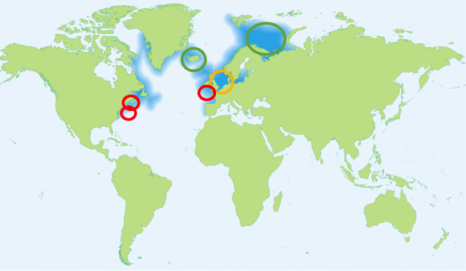
Atlantic Cod: The Good, The Bad, and the Rebuilding – Part 1 and 2
“Fishing pressures…or environmental pressures…are different from place to place even within what is considered to be a single management area, and that effect is multiplied when you consider going from one management area to another” says Coby Needle. This implies that there is no singular reason for the observed differences in stock status. However, there do seem to be general trends based on the latitudinal position of stocks. In general, the northern stocks are doing better than the southern populations. “In the NE Atlantic, the more northerly stocks like Barents Sea and Icelandic cod are generally in much better shape than the ones further south…There is some long-term environmental trend affecting their recovery” says Robin Cook. However, “it’s not as simple as it was 2 or 3 years ago when we probably thought it was all related to global change; the southern stocks were suffering while the northern stocks were benefitting from a warming Arctic” says Chris Zimmermann. One example is the disappearance of North Sea cod from the southern spawning grounds, where there has been no spawning activity for the last 10-15 years. “Newspapers say ‘there’s no spawning of cod in the North Sea at all.’ That’s not the case – it’s just the southern spawning grounds. That’s certainly related to global change” says Chris Zimmermann. “Distributions are further north because the more southern populations are less successful” Robin Cook agrees. Five Audio reports, Read the rest here 09:39 Read Part 1 here
We have not published anything by a non-scientist… until today! A fisherman responds to George Burgess
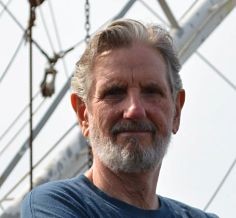 Recently on CFOOD we started a new series where we talk to fishery biologists and let them steer the conversation. We (try to) post one per week and invite anyone to comment or respond to whatever statements our interview subjects make. Our special shark week conversation was with noted shark biologist George Burgess. Dick Grachek, a fisherman out of Point Judith, took issue with some of Burgess’s comments on shark fishermen and women and the spiny dogfish fishery. Here, he responds to Burgess and offers a fisherman’s perspective not often seen.
Recently on CFOOD we started a new series where we talk to fishery biologists and let them steer the conversation. We (try to) post one per week and invite anyone to comment or respond to whatever statements our interview subjects make. Our special shark week conversation was with noted shark biologist George Burgess. Dick Grachek, a fisherman out of Point Judith, took issue with some of Burgess’s comments on shark fishermen and women and the spiny dogfish fishery. Here, he responds to Burgess and offers a fisherman’s perspective not often seen.
A response to George Burgess by Dick Grachek – There exists a carefully controlled and stringently regulated legitimate shark fishery! I have an issue with how George Burgess spoke about shark fishermen and women. He made inaccurate and misleading generalized statements about sharks and shark finning and claimed that, unless carefully scrutinized, “fishers will sneak in extra fins.” In particular, making silly statements about Spiny Dogfish as “high value,” implies a motive for overfishing and contributes to a perception of commercial fishing as greedy and uncaring plunder. These misinformed perceptions lead to baseless regulations. Such regulations are destructive to the fish and the fishermen. They can, and often do, prevent legitimate harvesting of a vital, healthy food source. Read the rest here 20:58
Misuse of the precautionary approach in fisheries management – A Conversation with Carl Walters
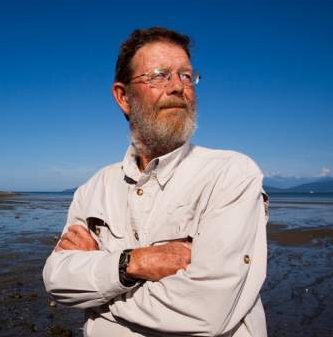 We spoke with Carl Walters of the University of British Columbia about the misuse of the precautionary approach by risk-averse scientists and conservation advocates. His concern arises from the application of the precautionary approach to Western Canadian salmon fisheries, which he believes has negatively impacted Canadian salmon fishermen and resulted in “virtually, an economic collapse.” He began by first differentiating between the precautionary principle and the precautionary approach, the former he claimed to be “a perfectly sensible statement that I think almost everyone would subscribe to about the need to avoid irreversible harm when possible…in the management of any system. There’s a different creature that has arisen in fisheries policy…called the precautionary approach to management” – this is the one that upsets him (00:35). Read the rest here Click here to listen 16:18
We spoke with Carl Walters of the University of British Columbia about the misuse of the precautionary approach by risk-averse scientists and conservation advocates. His concern arises from the application of the precautionary approach to Western Canadian salmon fisheries, which he believes has negatively impacted Canadian salmon fishermen and resulted in “virtually, an economic collapse.” He began by first differentiating between the precautionary principle and the precautionary approach, the former he claimed to be “a perfectly sensible statement that I think almost everyone would subscribe to about the need to avoid irreversible harm when possible…in the management of any system. There’s a different creature that has arisen in fisheries policy…called the precautionary approach to management” – this is the one that upsets him (00:35). Read the rest here Click here to listen 16:18
The Impacts of Trawling in the North Sea are Overrated
 A new study by Ferdinand Oberle, Curt Storlazzi, and Till Hanebuth attempted to quantify the global impact of bottom trawling on continental shelf. It presents a high-resolution, one-year, spatial record of ground-penetrating fishing activities, namely otter trawling (referred to as bottom-trawling in the paper) on the NW-Iberian shelf, and calculates the resuspended sediment load caused by the operations of this fleet. The authors also challenge conclusions from papers like Kaiser et al 2006 that suggest trawling affected seabed hotspots are rare. To this end the authors found NW Iberian shelf areas to be experiencing trawling on average 5.9 times per annum compared to less than 1 in previous studies. Read the rest here 21:18
A new study by Ferdinand Oberle, Curt Storlazzi, and Till Hanebuth attempted to quantify the global impact of bottom trawling on continental shelf. It presents a high-resolution, one-year, spatial record of ground-penetrating fishing activities, namely otter trawling (referred to as bottom-trawling in the paper) on the NW-Iberian shelf, and calculates the resuspended sediment load caused by the operations of this fleet. The authors also challenge conclusions from papers like Kaiser et al 2006 that suggest trawling affected seabed hotspots are rare. To this end the authors found NW Iberian shelf areas to be experiencing trawling on average 5.9 times per annum compared to less than 1 in previous studies. Read the rest here 21:18
What’s eating at Dr. Ray Hilborn today?!! Dr. Geoff Shester from Oceana
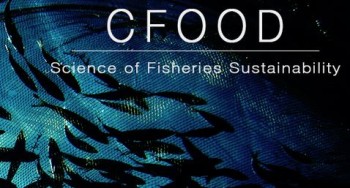 Last week Dr. Geoff Shester, California campaign director for the nonprofit advocacy group Oceana criticized the Pacific Fishery Management Council for the persistence of low numbers of California Sardines. The lack of a population recovery may cause the commercial moratorium to last until 2017. The author explained this sardine population decline as being 93 percent less than it was in 2007. Dr. Shester does not believe this is because of environmental causes like climate change, El Nino, or natural fluctuations in forage fish species however – instead he blames the management body. “They warned of a population collapse and the fishery management body basically turned a blind eye and continued moving forward with business as usual.” Response Comment by Ray Hilborn, University of Washington, Read the rest here 11:49
Last week Dr. Geoff Shester, California campaign director for the nonprofit advocacy group Oceana criticized the Pacific Fishery Management Council for the persistence of low numbers of California Sardines. The lack of a population recovery may cause the commercial moratorium to last until 2017. The author explained this sardine population decline as being 93 percent less than it was in 2007. Dr. Shester does not believe this is because of environmental causes like climate change, El Nino, or natural fluctuations in forage fish species however – instead he blames the management body. “They warned of a population collapse and the fishery management body basically turned a blind eye and continued moving forward with business as usual.” Response Comment by Ray Hilborn, University of Washington, Read the rest here 11:49

Catch Shares versus Sharing Catch – Comment by Stephen J. Hall, David J. Mills & Neil L. Andrew
Lee van der Voo considers catch shares in the US to be, “one of the coolest vehicles environmental policy has seen in decades,” because they reduce fishing effort, diminish incentives to fish in dangerous weather, can boost the value of seafood, and most importantly, were designed to keep fishing rights with the fishermen and their communities. However this last attribute has not worked for most catch share programs,,, Van der Voo fears that over the long term catch shares will increase costs, fishermen will earn less because of higher rental payments owed to, “people in suits,” that own the fishing rights. Consumers would then pay more in this scenario while a handful of investors would become rich. Read the article here 08:22
Will Scallop Dredging in Cardigan Bay be an Environmental Disaster?
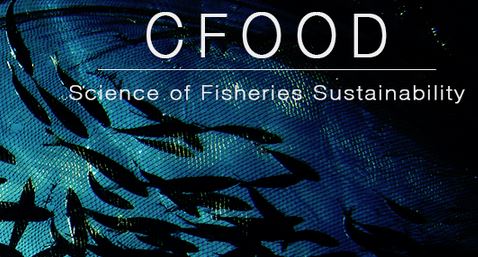 Recently in the UK, George Monbiot, a well-known environmental journalist, criticised the Welsh Government for undertaking a public consultation about the possibility of allowing restricted amounts of scallop dredging (dragging nets along the bottom) within a legally protected marine conservation zone. (Article here) In particular, Monbiot used a quote from Callum Roberts at the University of York to imply that the scientific study which led to this consultation was flawed. Read the article here 16:21
Recently in the UK, George Monbiot, a well-known environmental journalist, criticised the Welsh Government for undertaking a public consultation about the possibility of allowing restricted amounts of scallop dredging (dragging nets along the bottom) within a legally protected marine conservation zone. (Article here) In particular, Monbiot used a quote from Callum Roberts at the University of York to imply that the scientific study which led to this consultation was flawed. Read the article here 16:21
Sylvia Earle says our Taste for “Aquatic Bushmeat” is Killing the Sea – She is wrong!
A recent Newsweek article titled, “Our Taste for ‘Aquatic Bushmeat’ is Killing the Sea ” comments on the state of worldwide fisheries as food. The article uses interviews with Sylvia Earle and the Northwest Atlantic Marine Alliance to paint a bleak picture of the state of worldwide seafood. The article claims that 90% of fish in the ocean had been removed in the last half-century and 90% of the worlds stocks were unsustainably harvested (since corrected to 29%). Likening fish to “aquatic bushmeat” Sylvia Earle admonishes people who don’t think about what kind of fish they eat or where the fish is from. Read the rest here 13:42
” comments on the state of worldwide fisheries as food. The article uses interviews with Sylvia Earle and the Northwest Atlantic Marine Alliance to paint a bleak picture of the state of worldwide seafood. The article claims that 90% of fish in the ocean had been removed in the last half-century and 90% of the worlds stocks were unsustainably harvested (since corrected to 29%). Likening fish to “aquatic bushmeat” Sylvia Earle admonishes people who don’t think about what kind of fish they eat or where the fish is from. Read the rest here 13:42
Hilborn Says Newsweek Article “May Set a New Record for Factual Errors”
 Dr. Ray Hilborn, Professor in the School of Aquatic and Fishery Sciences at the University of Washington, takes issue with Newsweek’s August 9, 2015 article “Our Taste for ‘Aquatic Bushmeat’ Is Killing the Sea” and its bleak picture of the state of worldwide seafood. The article quotes Dr. Sylvia Earle, a former chief scientist at NOAA and now a National Geographic explorer-in-residence. The article incorrectly claimed that 90 percent of global stocks had been removed in the last half-century and that 90 percent of the worlds stocks were unsustainably harvested. The latter statement was corrected to 29 percent after staff pointed out the error. Read the rest here 08:10
Dr. Ray Hilborn, Professor in the School of Aquatic and Fishery Sciences at the University of Washington, takes issue with Newsweek’s August 9, 2015 article “Our Taste for ‘Aquatic Bushmeat’ Is Killing the Sea” and its bleak picture of the state of worldwide seafood. The article quotes Dr. Sylvia Earle, a former chief scientist at NOAA and now a National Geographic explorer-in-residence. The article incorrectly claimed that 90 percent of global stocks had been removed in the last half-century and that 90 percent of the worlds stocks were unsustainably harvested. The latter statement was corrected to 29 percent after staff pointed out the error. Read the rest here 08:10
“CFOOD” – New fact-check on fisheries reporting takes to Web, social media
 An international team of experts in fisheries management, spearheaded by UW professor Ray Hilborn, is trying to lead the conversation about sustainable fisheries using a less traditional approach — reaching the general public directly through a new website and social media outreach. Many scientific reports and resulting media coverage about fish stocks collapsing or being overfished are incorrect or widely misinterpreted, they say. They launched the effort two weeks ago to provide a forum for experts to discuss or explain certain claims. Read the rest here 19:33
An international team of experts in fisheries management, spearheaded by UW professor Ray Hilborn, is trying to lead the conversation about sustainable fisheries using a less traditional approach — reaching the general public directly through a new website and social media outreach. Many scientific reports and resulting media coverage about fish stocks collapsing or being overfished are incorrect or widely misinterpreted, they say. They launched the effort two weeks ago to provide a forum for experts to discuss or explain certain claims. Read the rest here 19:33

































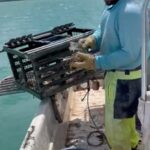
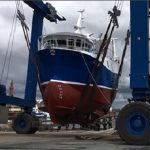

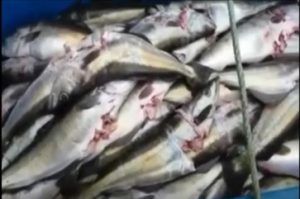
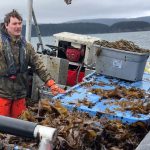
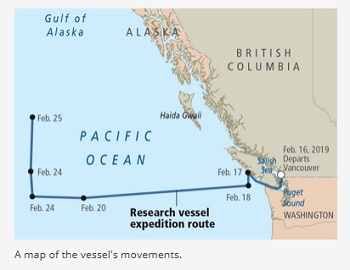
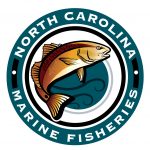

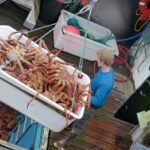
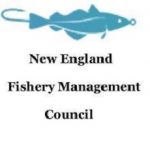



NPR Claims Fish Stocks are Declining Worldwide – Comment by Ray Hilborn, University of Washington
Share this post